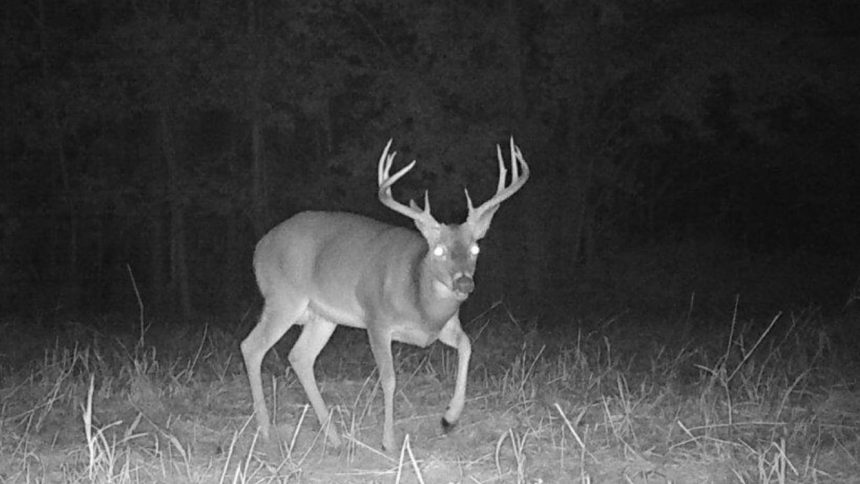In the world of Mississippi’s outdoors, a quote by John Audubon serves as a clarion call: “A true conservationist is a man who knows that the world is not given by his fathers but borrowed from his children.” This sentiment underscores the significance of protecting and preserving our natural resources for future generations.
Hunting, fishing, and outdoor enjoyment play a vital role in Mississippi supporting local businesses and contributing billions to the state’s economy. However, the decisions and actions of the Mississippi Department of Wildlife, Fisheries and Parks Commission – a five-member board appointed by the governor who can change the course of our conservation history with one vote – often go unnoticed by the public. It’s time to shine more light.
The current composition of the commission includes:
- Bill Cossar, chair
- Scott Coopwood, vice chair
- Gary Rhodes
- Billy Mounger
- Leonard Bentz (characterized as anti-science member of the commission, recently reappointed by Gov. Tate Reeves pending Senate confirmation)
It requires three votes on the commission to shape Mississippi’s outdoor landscape, influencing matters such as hunting seasons, bag limits, wildlife management, and more. These decisions hold the power to impact every Mississippian significantly.
It is essential that wildlife policies are founded on integrity, fairness, and sound science, with input from the community. The current law and composition of the commission, lacking specific expertise in wildlife management, presents a significant challenge.
Of particular concern is the threat of Chronic Wasting Disease (CWD) in whitetail deer populations. The disease, first detected in 2018 in Mississippi, poses a grave risk to deer populations and the hunting economy. The commission’s response to CWD, including recent decisions regarding affected counties like Claiborne, has raised questions about their commitment to addressing this issue effectively.
In Claiborne County, where a positive test result for CWD was recently reported, there’s an important teaching moment about how the commission does its business. Claiborne lies directly east of Tensas Parish, Louisiana, between Vicksburg and Natchez. It’s bordered on the west by the Mississippi River. Deer tracking studies have revealed that deer, particularly bucks, can traverse great distances, as evidenced by a collared deer swimming across the Mississippi River. This crucial data underscores the necessity of strategic geographic management of CWD, especially given that CWD was reported in Tensas Parish. It was vitally important Claiborne be in a CWD zone.
At the November 2022 meeting, the wildlife commission removed Claiborne from the CWD zone. Commissioner Leonard Bentz proposed setting the center of the Mississippi River as the western boundary, disregarding state deer program recommendations and best practices in America. This arbitrary decision, despite concrete evidence of deer swimming across the river, increased the risk of disease spread in Claiborne County.
Commissioner Billy Mounger, representing Claiborne on the commission and advocating for a science-based approach to CWD, opposed the motion. However, Bentz, Scott Coopwood, and Gary Rhodes supported the motion, with Chairman Bill Cossar abstaining. Despite Mounger’s dissent, the motion passed, and Claiborne County was excluded from the CWD zone.
Subsequently, Ducks Unlimited’s Ed Penny, a prominent conservation leader, voiced concerns as a private citizen and landowner in Claiborne about CWD at two subsequent commission meetings. Despite his calls for responsible action, the commission remained unresponsive and attempted to stifle his advocacy.
It was reported last week that another deer tested positive for CWD in Claiborne. This development followed the commission’s silence about the detection of CWD prions in a deer scrape last summer, which had already raised serious concerns about their commitment to containing the disease. But let’s be clear, CWD developments in northern Mississippi, especially Benton County, should have already created a compelling case for action.
For a glimpse into the events at the November 2022 commission meeting, a video is available on the SuperTalk Outdoors Facebook page, shedding light on the decisions and discussions that transpired.
Public engagement and adherence to scientific recommendations are crucial in managing CWD and safeguarding Mississippi’s wildlife legacy. The commission’s decisions, especially those made without adequate public input, have far-reaching consequences for all Mississippians and must be scrutinized.
As we navigate the challenges posed by CWD and other conservation issues, it is imperative that the MDWFP Commission acts responsibly and transparently to protect Mississippi’s wildlife legacy for generations to come.
It’s time to get serious about CWD. Mississippi has already lost precious time not implementing best practices. Our kids and our kids’ kids are counting on us.
Note from the author: The MDWFP Commission meets this week. Please go if you can! The meeting will be held Thursday, Feb. 22 at the Black Prairie WMA in Crawford. The education session will begin at 10 a.m. for informational purposes only. At 11 a.m., the business session will begin, where action can be taken by the five-member group. Public comments are welcome. Sign up to speak when you get there. If you can’t make it, the meeting can be live-streamed here. For additional information, contact Hollie Hilton at (601)432-2142.
The views expressed by contributors are their own and not the views of SuperTalk Mississippi Media.








